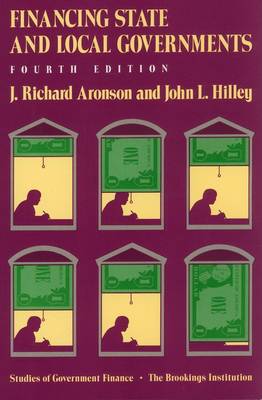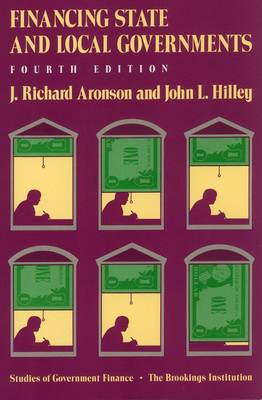
- Retrait gratuit dans votre magasin Club
- 7.000.000 titres dans notre catalogue
- Payer en toute sécurité
- Toujours un magasin près de chez vous
- Retrait gratuit dans votre magasin Club
- 7.000.000 titres dans notre catalogue
- Payer en toute sécurité
- Toujours un magasin près de chez vous
Description
State and local governments are at a financial crossroads. As the federal government attempts to reduce its deficits, state governments will have to provide a greater share of support for mandatory social programs. Local governments face demands for new initiatives in education and for civic improvements. Both have obligations to employee pension plans that are large and still relatively untested. Running counter to these claims on state and local budgets is a voter effort to limit the amounts that governments may tax or spend.
This fourth edition of James A. Maxwell's classic and widely acclaimed book will help both layman and lawmaker understand the choices open to their governments. It provides a lucid, nontechnical analysis of state and local finance. It gives concise descriptions of the taxes, grants, debt issues, and user charges that finance state and local government and discusses their relative virtues and drawbacks. It traces the history of state and local finance and presents statistical data on expenditures, federal aid, revenue from taxes and user charges, debt, and pension funds. The new edition, in recognition of changes since the mid-1970s, also includes a separate chapter on financing education and broadened analyses of federal grant programs, employee retirement systems, and nonguaranteed municipal debt.
"Spécifications
Parties prenantes
- Auteur(s) :
- Editeur:
Contenu
- Nombre de pages :
- 265
- Langue:
- Anglais
- Collection :
Caractéristiques
- EAN:
- 9780815755173
- Date de parution :
- 01-05-86
- Format:
- Livre broché
- Format numérique:
- Trade paperback (VS)
- Dimensions :
- 152 mm x 226 mm
- Poids :
- 399 g







